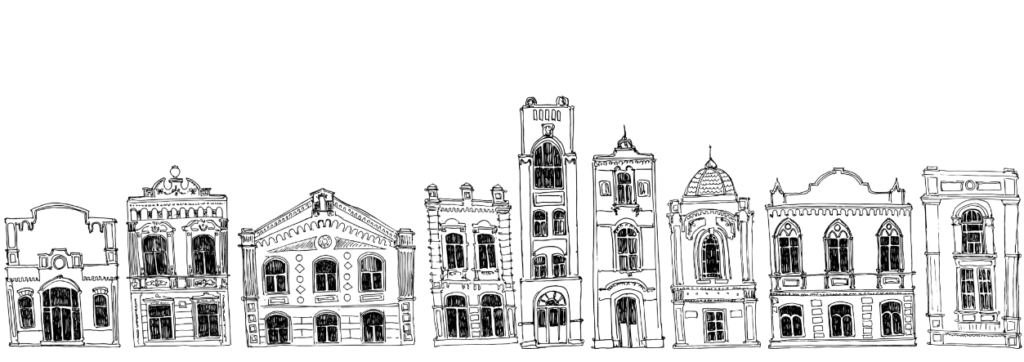Patrick Deneen and Jeremy Beer discuss the fatal flaws of liberalism and what comes next. Populism paves the way, but it can’t last without elite support.
Professor Patrick Deneen hit his stride—during his conversation on Givers, Doers, & Thinkers—in the latter half of the conversation, when he and Jeremy began reflecting on the (felicitous) rise of populism today.
Professor Deneen joined Jeremy to talk about his recent book, Why Liberalism Failed. He summarizes the book for us across the first several minutes of the conversation:
“Liberalism” is not a term for liberals of the Democratic Party, but for the modern political system we are living in. It takes its name from its root word, “liberty,” for the goal of liberalism is to achieve some sort of “equal freedom.” The goal of liberalism is to take whatever measures necessary to remove any and all hindrances to equal freedom.
The difference between the “left” and the “right” in American politics, then, is not whether to embrace liberalism, but how to best achieve the liberal ideal. For “conservatives,” it is less government; for “liberals” it is more state authority to realize and enforce equality and equal freedom.
LIBERALISM’S DEMISE
But therein lies the trouble, as Deneen sees it: it is impossible—due to circumstances of birth, natural gifts, and so on—to achieve equal freedom. Some set of ineluctable conditions will always ensure that inequality, and thus unequal freedom, obtains. The liberal task will continue to endeavor to realize this freedom but in the process will inevitably chew away at those things that are proper to human life and necessary for human happiness—the voluntary and local associations which are particular, and therefore not equal.
Naturally, this conversation led to speculating as to what comes next. If liberalism has failed or is failing, what comes after liberalism? What is the next political arrangement?
While he said that the most frequent criticism of his book is failing to answer what comes next, Deneen also points out that this is ultimately a separate topic. Diagnosis (his task) precedes prescription and prediction. That said, he and Jeremy spend several minutes describing the nascent populism that is growing in America and around the world, suggesting that it may offer some clues as to what comes after liberalism.
FLEETING MOVEMENTS
We are currently seeing populist trends in America and around the world—Trump and Brexit are the strongest examples, but you have other smaller resurgences all over. Worn out and disillusioned by the promises of wealth and comfort, the “people” are objecting to the anonymity and fluidity of liberalism—strange virtues that have left many behind even as we sought to “raise all boats.”
Deneen notes that there have been numerous populist movements in the history of America, but all have been a flash in the pan. They fail, time and again, to realize any lasting change or to provide any staying power because populism tends to be driven by “discontents”: it is a reaction against the current system, and while it may offer compelling criticisms, it fails to offer a positive vision. The absence of anything propositional dooms these populist movements to failure.
Now, however, Deneen says that we are at “a genuine inflection point” with a new totalitarianism on the horizon. The question is whether today’s populism can avoid quickly simmering out. Today’s populism can do this only if it can mature into offering a “possible alternative” to today’s political system, something both “attractive” and realistic. More than just reactions, a populism that can offer real and human value to communities and persons today must offer legitimate alternatives to the vices of liberalism.
For this, Deneen argues, populists need elites. They need those influential persons who can help form culture and advance a positive vision of the future. The trouble, of course, is that populism naturally hates elites. They stand in contradistinction. The elites handle the levers of politics and culture, and the “populum” foments a movement to promote the virtues and values missing from elite society or to contest the systems that have meant their suffering and dissatisfaction.
Alas, the knife cuts the other way, too. Our cultural elites are formed in those institutions of power and prestige that denigrate the values of today’s populist movement: stability, self-discipline, virtue, localism, civil society, and so on. These values essential to a movement against liberalism are precisely those values despised and denigrated in elite society. We need, then, “to produce and educate a different kind of elite” if we are to promulgate and promote not merely a criticism, but a positive vision of a different way of organizing our governments. We need a group of individuals with the formation and influence to see beyond liberalism, but to see and advance a society that values things like localism, civil society, and self-discipline.
A REALIGNMENT
It seems an impossible task, yes, but Deneen labors to be optimistic. While noting that he hates the Republican Party, he acknowledges his admiration for the shift taking place as the Republican Party suddenly becomes the party of the working class. We don’t know, of course, how it will take hold or whether it will last, but there is a discernable quorum of elites who at least use the rhetoric of populism and are working out the idea of “what comes next,” as it were.
On this point, Jeremy notes that both political parties used to rely on “freedom” and “liberty” as their go-to buzzwords, but you see this much less now. Deneen agrees, noting first that the Democratic party has become “the party of micromanagement”—as described years ago in “Harrison Bergeron,” a short story of “perfect freedom” by the great American author, Kurt Vonnegut. Deneen then describes the more interesting trend: “a real sea change” in the Republican playbook that is becoming much more comfortable with the rhetoric of “constraints” that lead to happier and healthier communities.
BEYOND LIBERALISM
Whether this “sea change” will hold or not, only time will tell, and certainly much work needs to be done to secure the healthier trends in today’s politics (and weed out the problematic ones). What seems clear is that if we wish life after liberalism to come not from a populist “revolution,” but from a reasoned and stable movement away from liberalism, then we do indeed need elite influence and buy-in.
More than that, we need robust organs of civil society. Part of Deneen’s argument is that liberalism is pernicious to those voluntary associations that are essential for healthy communities. Nevertheless, we cannot hope that liberalism will magically melt away and that civil associations promoting local virtue will rise like a phoenix from the dust.
On the contrary: those who see the flaws in liberalism and hope for a brighter future must contribute to building, and participating in, voluntary associations, even as it is an uphill battle and the levers of culture and society would strive to thin out and eliminate those institutions. But it will be through these associations and institutions that we build a better political society. And so the elites in particular, busy as they are with careers and mobility and other distractions, must commit to these associations—to fund them, yes, but more than this, to be members of them and to help them thrive.






